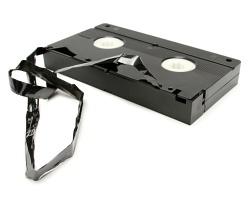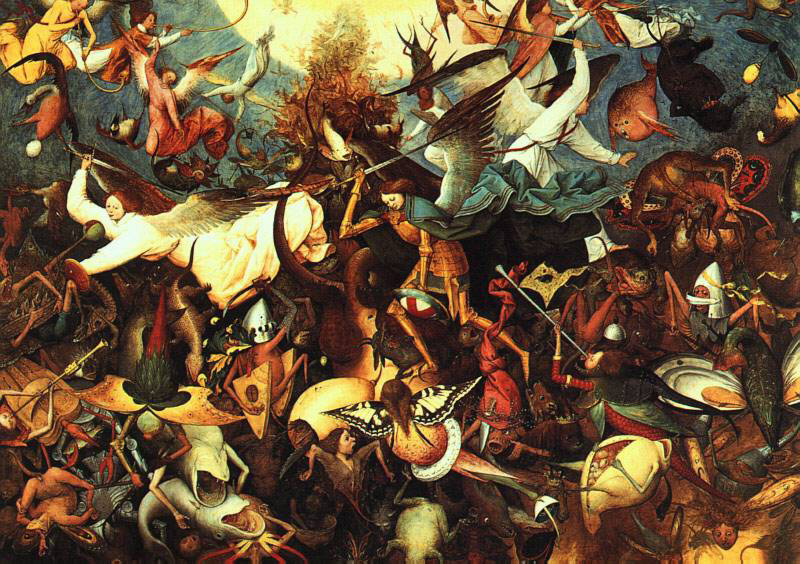Posts by David
Hole in Time workshop: speakers announced

The Hole in Time: German-Jewish Political Philosophy and the Archive
Date: Wednesday 23rd June – Thursday 24th June 2010, 9.30-6.00
Venue: Portland Hall, University of Westminster, 4-16 Little Titchfield Street, London W1W 7UW
Left discussions of politics and history owe much to German-Jewish theories of temporality that emerged in response to the political crises of twentieth-century Europe; such theories helped to problematize both the life of the individual and how the state perceived it. The workshop ‘German-Jewish Political Philosophy and the Archive’ brings together interested parties to engage with the data collection and archival dimensions of German-Jewish conceptions of temporality, history and crisis, as well as the German-French dialogue in critical philosophy.
Speakers: Howard Caygill (Goldsmiths, London); Matthew Charles (Middlesex); David Cunningham (IMCC, Westminster); Rebecca Dolgoy (Montreal/ FU Berlin); Andrew Fisher (Goldsmiths, London); Sami Khatib (FU Berlin); Veronika Koever (Queen Mary, London); Nicholas Lambrianou (Birkbeck, London); Nitzan Lebovic (Tel Aviv/Sussex); Birte Loeschenkohl (Frankfurt); Manu Luksch (London); Andrew McGettigan (University of the Arts, London); Reut Yael Paz (RishonLeZion); Silvia Richter (Heidelberg); Shela Sheikh (Goldsmiths, London); Tommaso Speccher (FU Berlin); Elina Staikou (Goldsmiths, London)
Chairs: Paul Betts, Christian Wiese, Esther Leslie, Sas Mays, Leena Petersen, Keston Sutherland
Co-organised by the IMCC and Centre for German-Jewish Studies, University of Sussex
Tagged as Europe, radical philosophy, Theory, time
Apocalypse and its Discontents: Call for Papers

Westminster English Colloquium #16: Apocalypse and its Discontents
Saturday 11th December 2010, University of Westminster, London
Keynote Speaker: Professor Adam Roberts (Royal Holloway)
Whereas visions of destruction and fantasies of the end have always haunted humankind, the modern period in particular has been increasingly characterised by a mixed sense of concern and fascination with the apocalypse, and even more so during the twentieth century. Today we are surrounded by scenarios of imminent destruction and annihilation, by politicians, scientists, religious groups, and writers, among others. This conference aims to explore and question the widespread appeal of the apocalypse. We are particularly interested in narratives that either challenge or offer alternative responses to apocalypse.
The organisers are seeking interdisciplinary papers exploring cultural responses to apocalypse, its discourses and counter-discourses. Topics may include (but are not restricted to): Anti-Apocalypse, Counter-Apocalypse, Ironic Apocalypse; Utopia, Redemption and Rebirth; Commodifying the Apocalypse; Death Tourism and Disaster Capitalism; Media Events theory: Disaster and the Media; Apocalypse and Everyday Life; The Age of Terror; Global Warming and Its Denial; Disaster Fiction/Movie; History as Apocalypse; Trauma theory; Viral Terrorism; Endings and Aftermaths; 2012; Technology and Mass Destruction.
Please email 500-word abstracts and brief bio to all conference organisers by 1 September 2010:
Monica Germanà: m.germana@westminster.ac.uk
Aris Mousoutzanis: a.mousoutzanis@kingston.ac.uk
Christopher Daley: c.daley@my.westminster.ac.uk
Tagged as apocalypse, science fiction, technology, The Future
Popular Matters at the Whitechapel Salon
%201991.jpg)
The Whitechapel Salon: Matter Matters I: Popular Matters
Thursday 13th May, 7pm
Study Studio, Whitechapel Gallery, London E1 7QX
The Whitechapel Salon is back! Spanning art, architecture, performance and sustainability, the forthcoming year-long series of four Salon discussions focus on the matter of ‘matter’ – its nature, substance and the productive forces that govern it. Chris Horrocks, Principal Lecturer, Kingston University and Julian Stallabrass, Reader, Courtauld Institute of Art consider Popular Matters including mass culture, vernacular photography, Web 2.0 and user-generated content.
Book now to avoid disappointment! Book your ticket here.
Tickets: £8/£6 (includes free glass of wine)
From Intermodernism to Science Fiction

Wednesday 14th April, 1.15-2.30pm
Room 106, University of Westminster, 32-38 Wells Street, W1T 3UW
Nick Hubble (Brunel University)
‘Naomi Mitchison: From Intermodernism to Science Fiction (via Mass-Observation)’
From her 1920s novels, influenced by Lawrence but aimed at the audience of Wells, to her subsequent deployment of modernist techniques for political ends, Naomi Mitchison may be considered a key intermodern writer. Her literary output during the 1930s – The Corn King and the Spring Queen (1931), Beyond This Limit (1934; a feminist fantasy illustrated by Wyndham Lewis), We Have Been Warned (1935), The Moral Basis of Politics (1938) and The Blood of the Martyrs (1939) – is comparable with Orwell’s. Her relentless pursuit of the ‘just society’, free from gender-based and sexual repression, made her a controversial figure even in that controversial decade. And her close literary associates of that decade – including Auden, Aldous Huxley, Olaf Stapledon, Stevie Smith, Wyndham Lewis and Walter Greenwood – suggest different ways of thinking about literary networks and cultural history in general. She was also a friend and supporter of Tom Harrisson and Mass-Observation, for whom she kept a wartime diary. Nick Hubble’s paper analyses this intermodern work and investigates how it relates to Memoirs of a Spacewoman (1962), a forerunner of the 1970s feminist utopian science fiction of writers such as Ursula Le Guin, Marge Piercy and Joanna Russ.
Free to all.
Tagged as feminism, Modernism, science fiction
21st Century London: Rachel Lichtenstein

Thursday 22nd April, 6pm
The Boardroom, University of Westminster, 309 Regent Street, W1B 2UW
In the final event in the 21st Century London series of talks at Westminster Rachel Lichtenstein, author of Brick Lane and (with Iain Sinclair) Rodinsky’s Room, and Visiting Fellow at the IMCC, will be speaking at Regent Street.
For more information, please email Monica Germana at m.germana@westminster.ac.uk. Events are free of charge, but booking is essential: please email Sharon Sinclair at sinclas@wmin.ac.uk to book a place.
Toby Litt on London

Thursday 11th March, 6pm
The Boardroom, University of Westminster, 309 Regent Street, W1B 2UW
Following a successful first event with urban visionary Iain Sinclair, in the second of a new series of talks at Westminster entitled 21st Century London, exploring the challenges and opportunities the city offers to the contemporary writer, Toby Litt will be speaking at Regent Street. Toby was winner of the 2009 Manchester Fiction Prize, and his many novels include Corpsing (2000), Ghost Story (2004) and Hospital (2007). Future speakers will be Diran Adebayo (March 18) and visiting research fellow at the Institute Rachel Lichtenstein (April 22).
For more information, please email Monica Germana at m.germana@westminster.ac.uk. Events are free of charge, but booking is essential: please email Sharon Sinclair at sinclas@wmin.ac.uk to book a place.
War in Liverpool

Thomson & Craighead will be showing ‘A Short Film about War’ as an installation for the first time at the MyWar exhibition at the Foundation for Art & Creative Technology (FACT) in Liverpool, running from March 12 – May 30 2010. It will appear alongside works by Phil Collins, Renzo Martens, Milica Tomic, Knowbotic Research, Harun Farocki, Sarah Vanagt, Joseph Delappe, Oliver Laric, Dunne & Raby, Harrell Fletcher and SWAMP.
Animate Projects have also commissioned Lisa LeFeuvre to write a contextual essay about the piece, which is available on their website to read and download as a diffusion book alongside a streaming version of the work. Read Lisa’s essay here.
Literary haunted houses
Wednesday 10th March, 1.15-2.30pm
Room 106, University of Westminster, 32-38 Wells Street, W1T 3UW
Andrew Smith (University of Glamorgan)
‘Haunted Houses and History: Locating the Anglo-American in Henry James’
Free to all.
Old Media/New Work: Call for Participants
Old Media / New Work: Obsolete Technologies & Contemporary Art
Saturday 1st May 2010, University of Westminster, London
Contemporary art shows renewed interest in ‘lost’, ‘obsolete’, and ‘archaic’ visual media forms and the illusion-producing processes of the past—for example: the camera obscura, the magic lantern, stereoscopy, Victorian stage illusion, shadowgraphy, optical toys, the panorama and stylised period representations such as the imagery of spiritualism, automatic writing, audio-technologies and early photographic techniques.
Co-organised by the Magic Lantern Society and the IMCC—in the wake of 2009-10’s popular public lecture series, Professor Pepper’s Ghost, at the University of Westminster—Old Media / New Work will provide a forum at which artists working with or around such ‘lost’ concepts and technologies can come together to show, discuss, and explore their own work in context of these past techniques, their contemporary relevance, and their future possibilities. The conference will also be documented and continued by a new WordPress website that will allow participants to upload images, texts and comments.
Confirmed participants include: Jonathan Allen; Geoff Coupland; Mark Ferelli; Mark Jackson; Juliette Kristensen; Susan MacWilliam; Olivia Plender; Joseph Ramirez; Aura Satz; Dan Smith; Simon Warner; Isabel White
The organisers, Mervyn Heard and Sas Mays, welcome participation from established practitioners, as well as up-and-coming artists and researchers and specialists in the field. Interested parties should send a short (250-word) description of their topic and their CV, by 14th March 2010, to: OldMediaNewWork@live.com
Tagged as art, cinema, gothic, magic, technology
Iain Sinclair talk
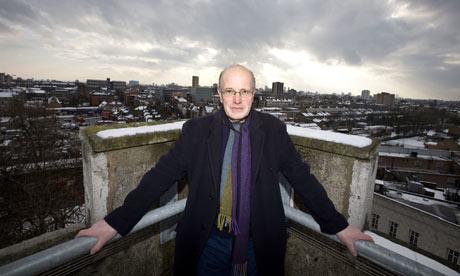
Thursday 4th March, 6pm
The Boardroom, University of Westminster, 309 Regent Street, W1B 2UW
In the first of a new series of talks at Westminster entitled 21st Century London, exploring the challenges and opportunities the city offers to the contemporary writer, Iain Sinclair will be in conversation with David Cunningham, Deputy Director of the IMCC. Future speakers will be Toby Litt (March 11), Diran Adebayo (March 18) and visiting research fellow at the Institute Rachel Lichtenstein (April 22).
For more information, please email Monica Germana at m.germana@westminster.ac.uk. Events are free of charge, but booking is essential: please email Sharon Sinclair at sinclas@wmin.ac.uk to book a place.
Milton, Life, Heresy
Wednesday 24th February, 1.15-2.30pm
Room 106, University of Westminster, 32-38 Wells Street, W1T 3UW
Nigel Mapp (University of Tampere, Finland)
‘Milton, Life, Heresy’
Free to all.
The Portrait and the Novel

Wednesday 24th February, 4.15pm
Room 106, University of Westminster, 32-38 Wells Street, W1T 3UW
Joe Bray (University of Sheffield)
‘Conceptual Metaphor and the Language of the Early Nineteenth-Century Portrait’
Hosted by our colleagues in Westminster’s English Language and Linguistics section, Joe Bray examines the meanings generated by frequent references, both literal and metaphorical, to the portrait in the early nineteenth-century novel. As critics have noted, the late eighteenth and early nineteenth-century novel drew on a well-developed cultural understanding of the portrait-novel connection, and this is particularly true of the novels analysed in this paper: Maria Edgeworth’s Belinda (1801) and Jane Austen’s Emma (1816). Each novel is extensively permeated by a metaphor of the countenance, or in some cases the whole body, as a painted portrait. The mapping involved would seem to create a ‘blended space’ which suggests that the emotions on the face can be easily read and understood, and thus that the body serves as a reliable index to ‘character’. Yet the implications of transparency and legibility that the metaphor of the painted countenance evokes are challenged in various ways in each novel.
Free to all.
Tagged as Literature, novel, portrait, visual culture
Veneers of science
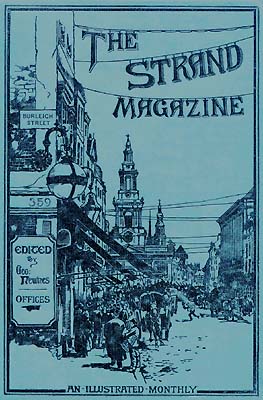
Wednesday 10th February, 1.15-2.30pm
Room 106, University of Westminster, 32-38 Wells Street, W1T 3UW
Jonathan Cranfield (University of Kent)
‘Veneers of Science: Science and Ideology in The Strand Magazine’
Free to all.
The game of war

Tuesday 16th February, 3.00-5.00pm
Westminster Forum, 5th Floor, University of Westminster, 32-38 Wells Street, W1T 3UW
Richard Barbrook (University of Westminster)
‘What’s the actual title? The Game of War: Understanding Situationist’
Hosted by our nextdoor neighbours in the Centre for the Study of Democracy, colleague and fellow traveller Richard Barbrook talks about Guy Debord and Class Wargames. Free to all.
Find out more about Class Wargames here.
Tagged as politics, Situationism, the avant-garde
J.M. Coetzee talk
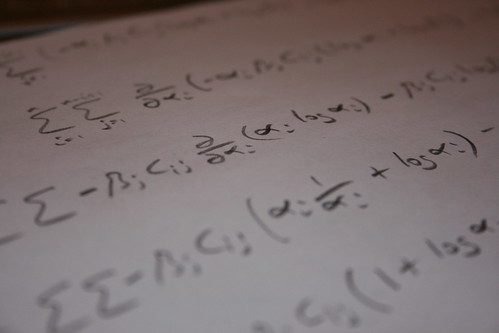
Wednesday 27th January, 1.15-2.30pm
Room 106, University of Westminster, 32-38 Wells Street, W1T 3UW
Peter Johnston (Royal Holloway, University of London)
‘The Mathematical Contexts of J.M. Coetzee’s Early Poetry (1958-1964)’
Free to all.
Public Lecture: Toby Miller
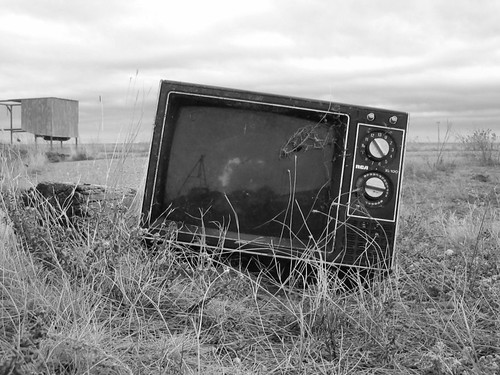
Wednesday January 13th 2010, 5.00pm
Cayley Room (room 152), University of Westminster, 309 Regent Street
Professor Toby Miller (University of California, Riverside)
“Cultural Policy Redux”
Toby Miller is editor of the journal Television & New Media, and author of many books including Spyscreen (Oxford University Press), Television (Routledge), Television Studies (BFI), Popular Culture and Everyday Life (Sage), Technologies of Truth (University of Minnesota Press), The Avengers (BFI), and The Well Tempered Citizen (The Johns Hopkins University Press).
Tagged as education, television, Theory, visual culture
An Encounter with Charles Taylor

Friday 15 January 2010, 10am-4.30pm with public lecture at 5pm
Fyvie Hall, University of Westminster, 309 Regent Street
Our next door neighbours in the Centre for the Study of Democracy (CSD) are hosting their annual CSD Encounter on Friday 15th January 2010. Following recent encounters with Julia Kristeva and Stuart Hall, this year’s one-day event will be focused on the work of Charles Taylor, with two workshop sessions followed by a public lecture by Professor Taylor himself on ‘Secularism and Multiculturalism’. Workshop speakers include Grace Davie, Steven Lukes, Tariq Modood, Chantal Mouffe and Stephen Mulhall.
For further information and to RSVP email: Jessica.schmidt@my.westminster.ac.uk
The Future Papers, Part Three: Stephen Melville

The third and final part in a short selection of transcriptions of talks from the recent series on ‘The Future’ at the David Roberts Art Foundation. Here’s Stephen Melville’s paper, which constituted a fitting finale to the series. Is the future now?
4. The Future is Now, Now is the Future
Stephen Melville
The two earlier discussions in this series that I was able to attend both seemed to turn quite strongly on a contrast between modern and postmodern representations of the future, more or less as they appear to line up with the contrast between so-called Golden Age and New Wave science fiction. It’s been hard for me, at least, not to hear bits of Beckett stammering in the background, so I was happy to hear Krapp’s Last Tape surface briefly on Saturday. The overall contrast seemed, roughly, one between a future fully distinct from the present and underwritten by a certain faith in science, and a future underwritten by technology and threatened with imminent collapse into the present (or, as one speaker put it, having the shape of an endless intensification of the present) – thus tending also toward a contrast between the utopian and the simulacral, as well as between progress and repetition, and – at least I’ve tried to suggest this – between a certain assumption of shared human being or community and a skepticism about other minds registered, among other places, in a shift in the understanding of the material basis or medium specificity of film from a photographic practice to a form of animation. This last maybe permits an expansion of the postmodern/New Wave text to take account of our apparent current interest in various forms of the undead, and most notably the emergence of the postmodern speed zombie. Neither of these representations seems satisfactory: the Golden Age is, as it were, too much future and in that sense doomed to fail, while the New Wave seems finally not a future at all. Both politics and religion have remained for the most part discreetly in the background, especially religion – which is odd to the extent that one of our continuing interests in the future is, I think, broadly redemptive (certainly notions of apocalypse and the post-apocalyptic, of things more or less shaped like the end of history or the end of the world have put in appearances). It’s perhaps worth opening the contrast a little further off its native ground by taking note of the evident difference between a modern stock market in which one invests for a future that must be awaited, and a postmodern stock market in which futures themselves become a primary commodity and one dreams – sometimes of course in real money – of a present profit made by strip-mining the contingency of the future. Our moment seems to be one that wants to read the phrase ‘the future is now’ – a phrase that I think goes back to the 1950s as a way of naming the new marvels of the present – as ‘now is the future,’ thus as a promise of no more marvels.
Continue reading The Future Papers, Part Three: Stephen Melville
Tagged as art, science fiction, The Future
The Future Papers, Part Two: Garin Dowd

The second part in a short selection of transcriptions of talks from the recent series on ‘The Future’ at the David Roberts Art Foundation. Here’s Garin Dowd’s paper from the final night, seamlessly drifiting from Beckett to Ballard, Deleuze to Daney.
3. ‘Replay: conducts of time x 4 (interstitial pedagogies)’
Garin Dowd
I borrow the idea of conducts of time from Eric Alliez. Conducts would refer to behaviours – and suggest an ethology – but also to channels. Conducts of time are also ‘gaits’ of time, postures of time in movement; equally they might inhere in the pas au-delà, the step which is also a pas – a not, in Jacques Derrida’s formulation (via Blanchot). Conducts of time may give rise to systole or diastole, to condensations and saturations, as in running on the spot, and to disseminations. It may produce reifications and consolidations, or it may liberate blocs of becoming.
The action of Samuel Beckett’s play Krapp’s Last Tape is famously set, according to the stage directions, on ‘a late evening in the future’. While it is anecdotally recorded that the motivation behind this direction was Beckett’s concern that, without such a prompt, what would be required of the audience is the performance of the retrospective science fiction to permit tape recorders to exist prior to their invention (the aged Krapp listens to a recording of himself aged 39, while the play was first staged in 1958), there seems to be much more at play than simply a peculiar concession to verisimilitude. Nonetheless the precession, at once announced and elided by Krapp’s Last Tape, of this particular archival technology, reminds one also that it is the cataloguer of the famous precession of simulacra, Jean Baudrillard, who tells us much, inadvertently, about Beckett’s concerns in this play. In La Gauche Divine we read that ‘le rêve d’une conductibilité absolue [de l’information] ne peut etre qu’excrémentiel’: the dream of an absolute conductibility [of information] can only be excremental. The dream of an absolute conductibility of information is also the predicament or the opportunity of the protagonist in Krapp’s Last Tape. How to phrase; how to gather; how to memorialise ‘eschatologically’ (his last tape) and/or scatalogically (his ‘unattainable laxation’): these issues trouble Krapp, and trouble him in a way which is, in Derrida’s sense, archival. In this respect the play reminds us of what Derrida identifies as the archive’s relationship to the future: ‘the technical structure of the archiving archive also determines the structure of the archivable content even in its very coming into existence and in its relationship to the future’. So on our particular late evening in the future, the future now or round about now, I want to introduce 4 conducts of time.

